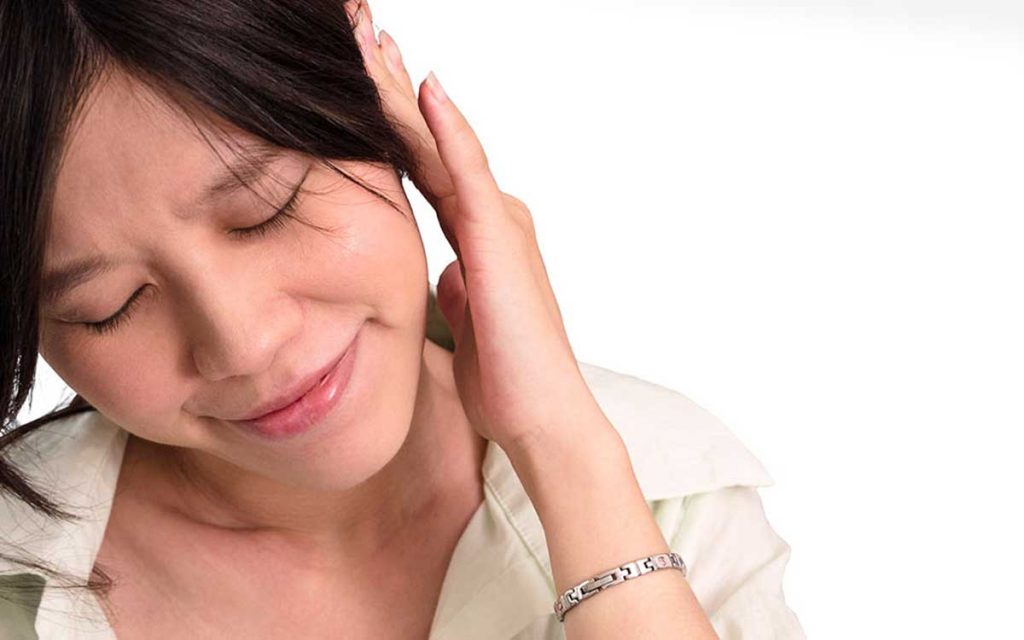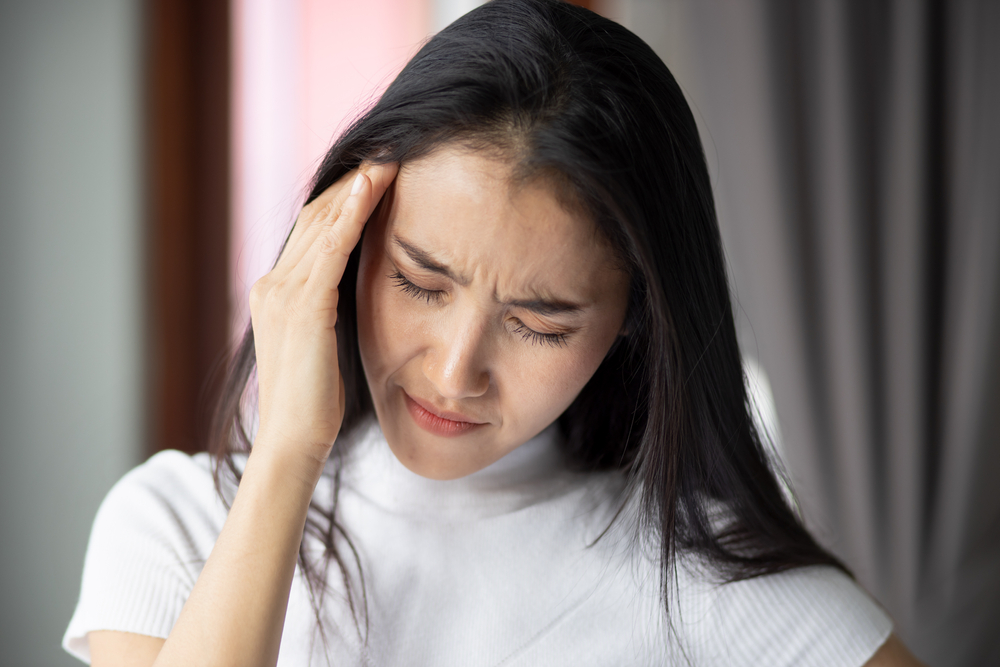What’s the best way to eliminate the ringing in my ears? There’s no cure for tinnitus, but understanding what causes or exacerbates your symptoms can help you minimize or avoid episodes.
Are you experiencing a constant ringing, buzzing, or whooshing sound in your ears? This condition is called tinnitus, and it can wreak havoc. People who hear these sounds have trouble sleeping and concentrating, and they may also have associated hearing loss. Because it is usually related to some other condition, there is no real cure for the tinnitus itself, but there are steps you can take to quiet the noise. If you aren’t successful with these tips at home, a hearing specialist may be able to help.
What should I avoid to reduce the ringing in my ears?
The first step in dealing with that constant ringing in your ears is to avoid the things that have been shown to cause it or make it worse. One of the most common factors that aggravate tinnitus is loud noises. Avoid using headphones, and if you are exposed to noise at work or at home, get some high-quality earplugs to minimize the damage.
You should also talk to your doctor about your medications, as certain antibiotics, anti-inflammatory drugs, and high doses of aspirin can make the ear ringing worse. Never stop taking your medications without first speaking to your health care professional.
Other common causes of tinnitus include:
- issues with the jaw
- stress
- infections
- excessive earwax
- high blood pressure
- allergies
- other medical problems
Tinnitus and issues with the jaw
If for no other reason than their physical proximity, your jaw and ears exhibit a certain amount of interplay between each other (they’re good neighbors, usually). That’s why issues with your jaw can cause tinnitus. The best example of this is a condition called Temporomandibular joint disorder (TMJ for short), which involves a breakdown of the shock-absorbing cartilage around the joints in your jaw. The resulting stress produced by simple activities such as chewing or speaking can ultimately lead to tinnitus symptoms.
What can I do? If your tinnitus is caused by TMJ symptoms, then the best way to achieve relief is to seek out medical or dental treatment for the root cause (no pun intended).
Stress and that ringing in my ears
Stress can impact your body in very real, very physical ways. Associated spikes in blood pressure, heart rate, and breathing can all lead to an intensification of tinnitus symptoms. As a result, stress can trigger, exacerbate, and extend tinnitus episodes.
What can I do? If stress is a significant cause of the buzzing or ringing in your ears, you can try solutions such as yoga and meditation to try to de-stress. Taking some time to minimize the stress in your life (where and when you can) will also help.
Infections around your ears
Ear infections are relatively common, especially in children. When your ears are fighting off these infections, you may experience a variety of tinnitus symptoms (often most noticeably buzzing or ringing in your ears).
What can I do? When it comes to an infection, you’re going to want to seek out medical advice. Not all infections will require treatment–but only a medical professional can make that ultimate determination. In most cases, the treatment of the infection will lead to a decrease in your tinnitus symptoms.
Excessive earwax
Earwax is totally normal and healthy. But too much earwax can irritate your eardrum, and begin to cause buzzing or ringing in your ears. The resulting tinnitus can worsen if the earwax continues to accumulate or becomes difficult to wash away normally.
What can I do? The simplest way to minimize the ringing in your ears caused by excessive earwax is to keep your ears clean! (Do not use cotton swabs to clean your ears.) In some cases, you might need to seek out professional cleaning in order to get the ringing or buzzing to go away (some people just naturally produce a lot more earwax than others).
High blood pressure makes tinnitus worse
Hypertension, or high blood pressure, can create all kinds of health issues, including tinnitus. High blood pressure has a way of intensifying the ringing or buzzing you’re already hearing, making it difficult to ignore. There’s no cure for tinnitus, but there are treatments for high blood pressure.
What can I do? High blood pressure is not something you want to ignore. You’ll likely want to seek out medical treatment. But you can also change your lifestyle a bit: avoid foods with high salt or fat content and get more exercise. Stress can also increase your blood pressure, so practicing relaxation techniques or making lifestyle changes can also improve hypertension (and, thus, hypertension-related tinnitus).
Allergies
It’s not just sneezing and itchy eyes you have to watch out for. Allergies can cause your tinnitus symptoms to flare up, too. In general, allergies cause inflammation (it’s your body’s sometimes annoying natural immune response), and inflammation can cause an intensification of your tinnitus. The buzzing and ringing both get louder.
What can I do? Taking allergy medication, such as an antihistamine, can help keep the inflammation in check and, therefore, minimize the buzzing or ringing in your ears.
Other medical problems
In some cases, other medical problems, such as Meniere’s Disease, can cause tinnitus. Sometimes, it’s the underlying medical condition itself that causes the ringing or buzzing in your ears. In other cases, the medical treatment itself may cause tinnitus or tinnitus-like symptoms. There’s no cure for tinnitus, but treatments in these cases will depend largely on the medical context in which your symptoms appear.
What can I do? Talk to a medical or hearing professional about your tinnitus symptoms and the best way to address them, depending on which medical problems may be contributing to your situation.
Is the tinnitus caused by earwax?
Earwax that is pushed down near your eardrums can cause tinnitus. Use hydrogen peroxide or over-the-counter drops to clean your ears. Never use cotton swabs, tissues or other items to try to clean your ears, as this often results in pushing the wax further in and making the problem worse.
If you believe you have excessive earwax that you cannot clean yourself, see a hearing professional. They have special instruments to clean your ears safely.
Will using a masking device or white noise device help my tinnitus?
You can reduce the effects of the constant noise in your head by distracting your ears and your brain. You don’t even have to buy special equipment, like your radio, TV or laptop can act as masking devices. If you prefer, there are special devices you can purchase to help.
Choose a sound that makes you happy, such as waves crashing or just general sounds of nature. Play that sound when your tinnitus is particularly bad or you are trying to sleep. The sound of a fan running might even do the trick. When you focus on that pleasant sound you may be able to block out the ringing or buzzing noises in your ears.
See a professional for persistent ringing in the ears
Hearing health professionals and psychotherapists can both help alleviate your tinnitus symptoms. Don’t make the mistake of being too embarrassed to go to a doctor for something that doesn’t seem like a “real” problem. Constant ear ringing has real consequences, and it is often associated with hearing loss.
Your hearing specialist can give you a pass/fail hearing screening, followed by a full evaluation if necessary. Depending on your level of hearing loss, your doctor may recommend hearing aids. These devices not only help you hear better, they often alleviate, mask, or eliminate the constant ringing.
It may seem strange to see a mental health professional about your tinnitus, but research has consistently shown that therapy can help. Cognitive-behavioral therapy teaches people to change their negative thoughts into more positive ones. Since stress is one of the causes of tinnitus, finding ways to control your emotions can help alleviate your symptoms.
If you experience a constant ringing, whooshing, or buzzing sound in your ears, take the problem seriously. It may be a warning sign that you also have hearing loss, or that you are experiencing a medical issue that needs to be addressed before it worsens. Take steps to protect your ears from loud noises, find ways to distract your ears, and see a professional before what started as a nagging problem leads to bigger issues.
Here are some of the things your specialist may do to diagnose and identify the underlying causes of your tinnitus:
- An ear exam
- Clenching your jaw or moving your head
- Ask you to describe the sounds you hear and when you hear them
Alternative treatments for ringing in your ear
Some people find that acupuncture helps alleviate the symptoms of tinnitus. This may be because acupuncture has been shown to help people cope with stress and to lower your blood pressure. For others, though, the thought of needles makes their blood pressure go up, in which case this is not a good idea. Counseling and support groups are another alternative option for dealing with the ringing in your ears. Whatever treatment method you choose, try to stay calm. Your emotional state can exacerbate symptoms.



